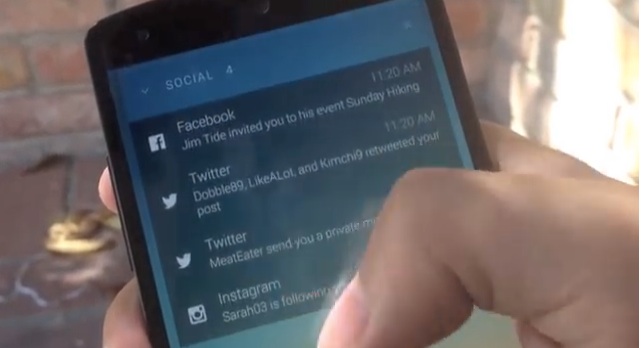Back in January, startup Prim shut down its door-to-door laundry service. Now its founders are ready to talk about what they’re doing next — and no, it’s not laundry-related.
The team has built an app for Android lockscreens that helps users manage what can sometimes feel like a barrage of push notifications. Co-founders Xuwen Cao and Yin Yin Wu said this was an issue they faced when working on Prim. They recalled receiving push notifications while driving and scrambling for their phones — sometimes it really was something urgent and Prim-related; sometimes it was just a Facebook notification.
With the free Echo app, notifications are now automatically sorted into different categories, namely work, social, media, priority, and spam. You can look at notifications from each category, but your phone will only wake up for priority messages — so if you’re (say) driving and get a push from your phone, you’ll know (theoretically) that it’s something important. And you can set reminders to return to notifications later.
The company is technically the same one as Prim, and like Prim, the team consists solely of Cao and Wu (minus some contract drivers). They quietly launched an alpha version of the app a few weeks, and you can see a demo in the video below.
As an iPhone owner (oops), I wasn’t able to try Echo out myself, but it has already attracted some positive writeups on app- and Android-focused blogs. For example, Android Police described it as “an attractive alternative for sufferers of notification overload.” Plus, the review’s one major gripe, that users don’t get any say in how things are categorized, has already been fixed — notifications still get assigned a category automatically, but you can do a long right swipe to reassign them.
Cao and Wu also acknowledged that Google is working to improve the lock screen interface and notifications in Android, but they predicted that as these updates roll out, “We’ll be much further along.” For one thing, they plan to make the app more aware of context — as Wu put it in an email, “When you are on a date, [Tinder] notifications should not appear. You want to see Secret alerts at home, and not in a meeting.”
As for making money, they said they’re currently focused on user growth, but they see a number of monetization opportunities, particularly when it comes to promoting apps. That sounds like it could be potentially annoying, but Wu pointed out that these promotions would only show up at relevant moments — for example, you might see a promotion for a social app when you’re looking at your social notifications.
And the pair talked a little bit about went wrong with Prim. Wu said that the real issue had been working with laundromats — the smaller ones couldn’t handle much additional laundry, while the larger ones often offered delivery service on their own.
“We realized that for us to have a sustainable source of supply, we’d need to go and open our own laundry facilities,” Wu said.
That shouldn’t be a problem with Echo. Plus, Shu said they spent “a good amount of time” talking to people about the product to make sure they were solving a real need. Similarly, they wanted to make sure they had solid user retention numbers before they made a big promotional push. So among initial users, they said 25 percent uses the app every day, and the average user engages with Echo more than 40 times a day.
Android users can download the app here. iPhone owners like me are out of luck, however. Apple doesn’t really allow developers to have this kind of access to the lockscreen, and Wu added, “Android is just growing so fast. It makes sense for us to focus on where the trend is heading.”
